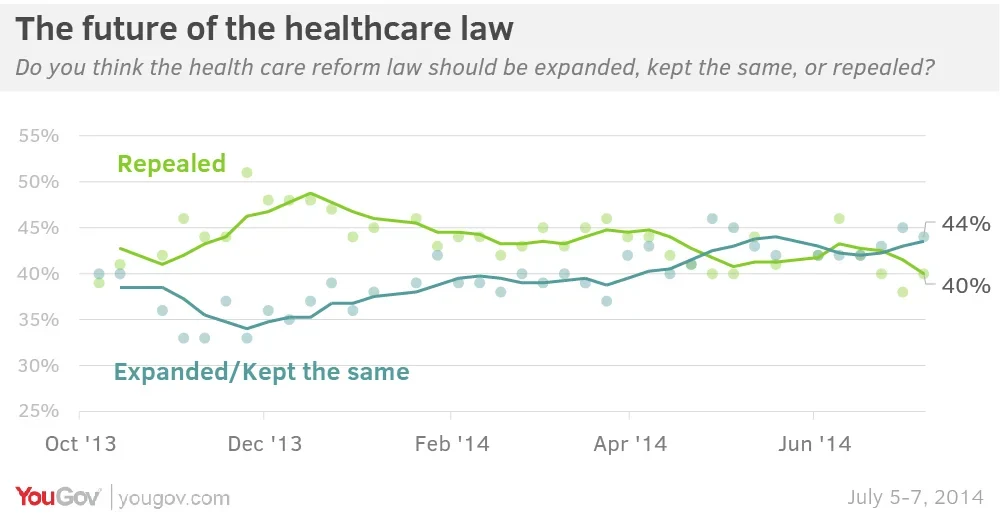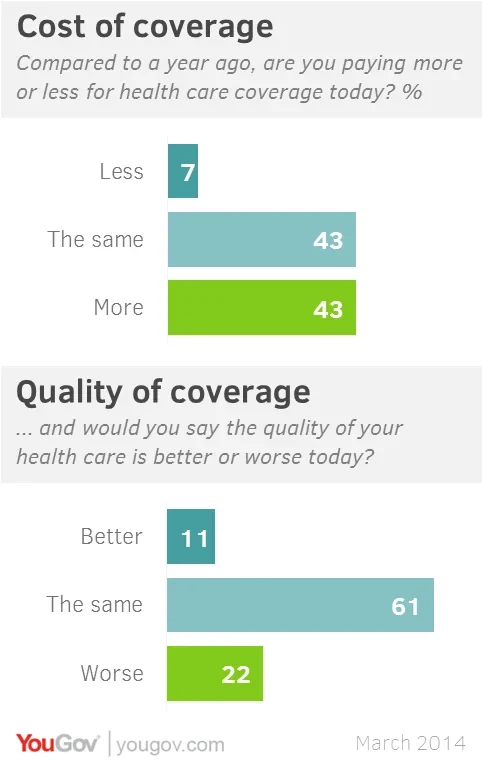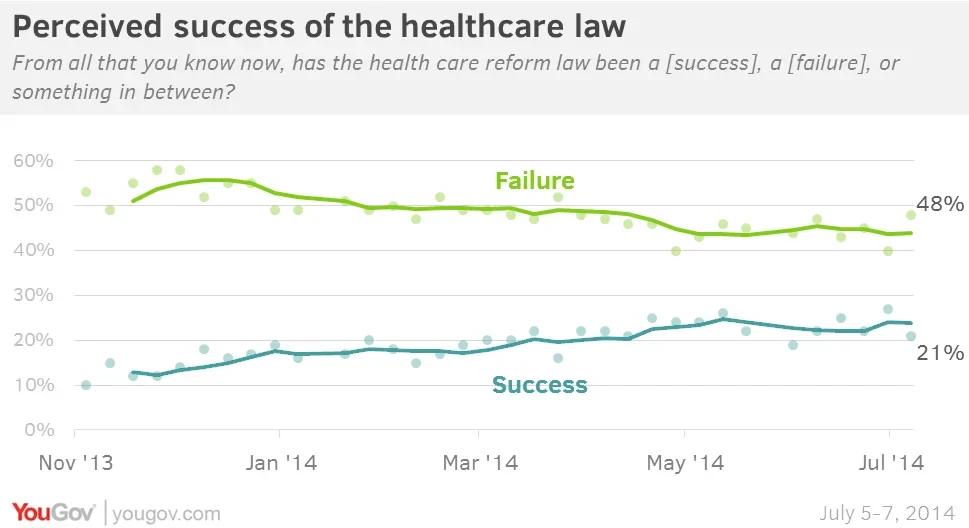Over the last six months, opinions of the ACA have slowly improved from their November lows
When the Affordable Care Act (Obamacare) was adopted in 2010, most Americans were convinced that it would increase their health costs and many believed it would decrease the quality of their coverage. Now, half a year after the individual mandate went into effect, costs and quality continue to be issues. But recent Economist/YouGov Polls suggest that the country might be getting used to the idea of the ACA. For the last few months, pluralities have mostly favored keeping or even expanding the ACA, not repealing it.

Although poll results change from week to week, a positive trend appeared after the announcement that enrollments through the health exchanges had exceeded the government’s goal of seven million enrollees. This week, 40% want to repeal the law (that includes 75% of Republicans) while a total of 44% would expand it or keep it as it is.

This poll and others have found more Americans today reporting that they are covered by health insurance than were covered last year. Those increases appear to be most striking among younger and less well-off respondents. However, coverage isn’t free. 43% say they are in fact paying more for coverage, though that percentage is lower than the majority that expected their health care costs to rise under Obamacare. Two in three say they have seen no change in the quality of health care, though more say it has gotten worse than think it has improved. But the percentage reporting a worsening in quality of coverage is lower than the percentage who expected that to happen in polls taken as the law was adopted.
Democrats are twice as likely as Republicans to say their coverage has improved. Nearly half of Republicans say they are paying more this year for it; so do a third of Democrats.
These improvements may best be described as marginal, since Obamacare is still viewed as a failure by more than twice as many as judge it a success. However, the margin clearly has narrowed since late spring.










